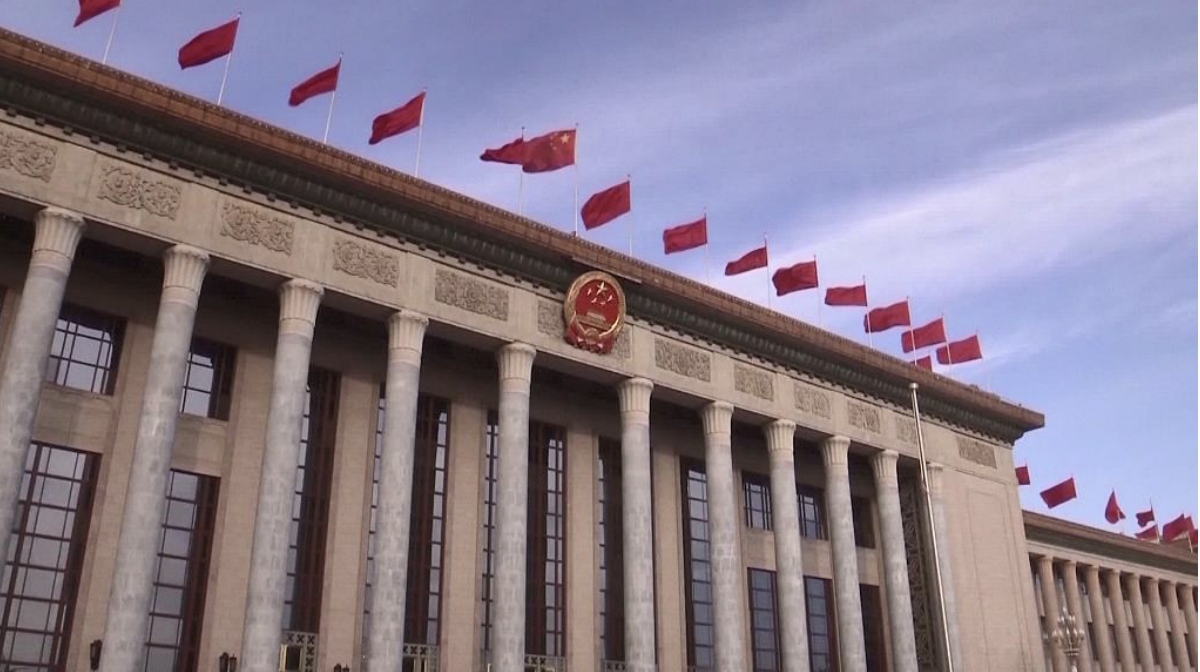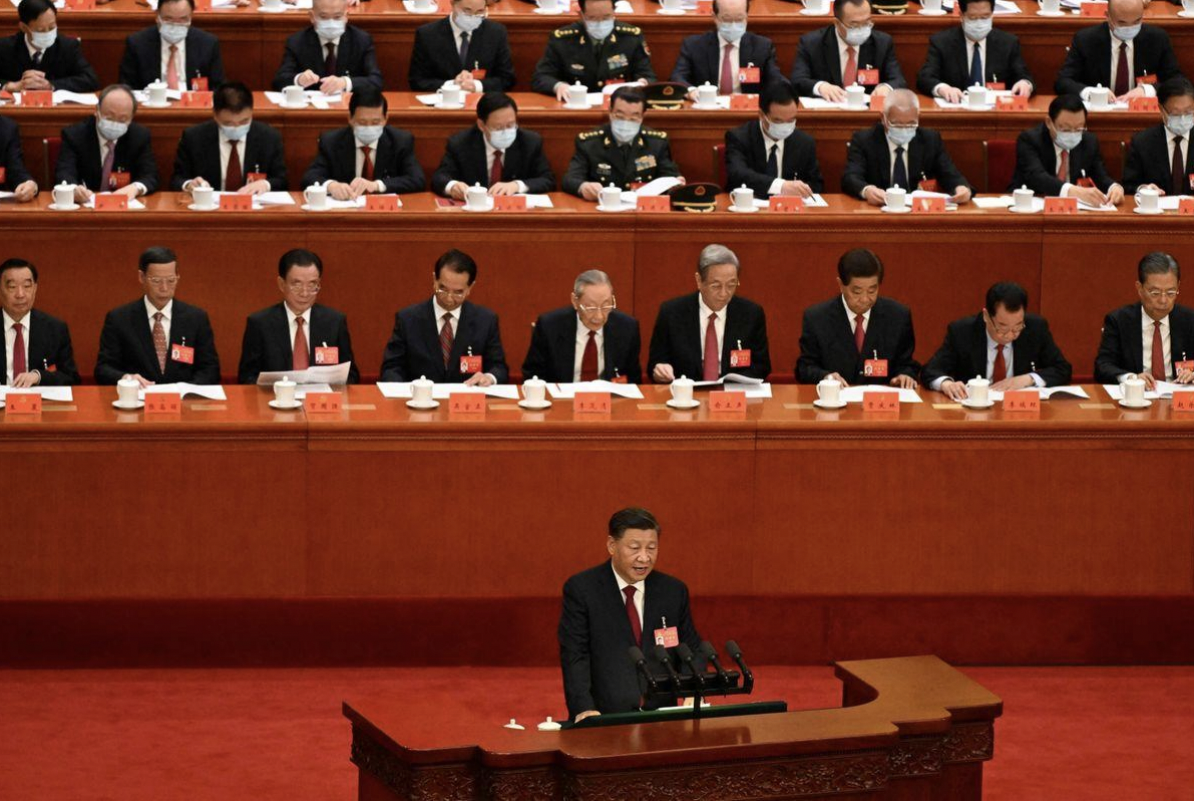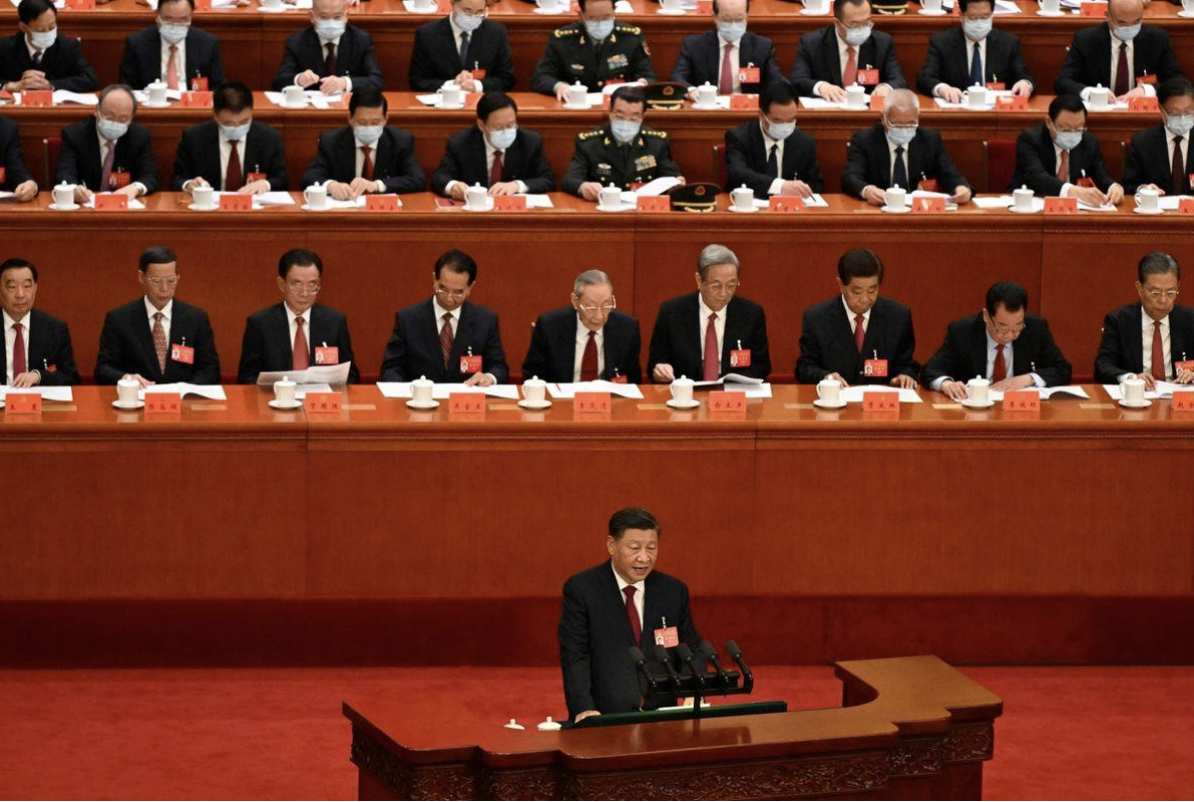
Source : CGTN
1. High levels of continuity from previous CPCs and government policies.
In this year’s CPC report, most of the policies and statements related to economics and trade were continuations of existing policies that were announced five years ago at the last CPC. Noticeably, the CPC indicated that China is more concerned with risk management in the economic and trade sphere, most likely given the changes in diplomatic and economic and trade relations with some Western countries. For example, in Part IV of this year’s CPC report a core expression regarding opening-up to the outside world is changed from “making new ground in pursuing opening up on all fronts” found in the 2017 CPC report to “promoting high-standard opening up.” This may be because the CPC considers that the blueprint of opening up has taken shape and that the next task is to advance the detailed work and improve the quality of the work. Another detail is the replacement of the phrase “promote liberalization and facilitation of trade and investment” with the phrase “steadily expand institutional opening up with regard to rules, regulations, management, and standards.” This more specific expression refers to the fact that the future opening up policy will be more complete and in line with the mainstream international standards, and will bring a more level playing field for foreign companies. This is good news or foreign companies doing business with China because while China is still emphasizing stability and self-sufficiency in its core supply chain, the Chinese market as a whole will be further opened up to foreign companies.
2. Measures to support the economy to maintain growth and high-quality development
The 20th congress report suggests that high-quality development will be the CCP’s top priority for the next five years, and specifically entitles the Chinese development model as the Chinese path to modernization. Based on this theory, the CPC emphasised the sustainability, coherence and universality of economic development. The CPC report states that China will not only establish a modern industrial system with science and technology innovation as the core driver but also a ‘dual circulation’ system to expand domestic production and consumption. This plan also includes further reform and development of less-developed regions. In addition, reducing the gap between the rich and the poor will also be the focus of the CPC’s future work. In this context, although the miracle GDP growth of the early 21st century will be difficult to reproduce, the Chinese people will become more affluent thanks to industrial transformation and income distribution reforms. The report states that China will expand the middle-income group (households with an annual income of $14,000-$70,000), which has reached 400 million people according to a 20th congress spokesperson. As the number of affluent families increases, China’s consumer demand, especially for high-quality products, will expand further. The report suggests that China should enhance the fundamental role of consumption in economic development while promoting green consumption. This is clearly a good trend for foreign companies wishing to sell sustainable and premium products in China.

3. Emphasise on supporting foreign trade and high-quality foreign investment – not isolation from the global economic community
China’s restrictive zero covid and dual circulation policies, which have caused disruptions to foreign trade and business with China, have fostered theories that China is striving to shut itself off from the world in favour of self-reliance. Thus, policies that suggested China was willing to ease trade links and the business environment in China were eagerly awaited by China watchers in Africa and globally. The importance of encouraging foreign investment and foreign trade was recognised and emphasised throughout leadership speeches at the congress and the final CPC report. President Xi Jinping explicitly stated in his opening speech that: “China cannot develop in isolation from the world. The world’s development also needs China.” The report acknowledged that China has become the largest trading partner for over 140 countries and regions and is the number one destination for foreign direct investment (FDI) in the world. The report also emphasised that foreign investment and business will be a core tenant of the country’s “high-quality development” and that China would strive to “attract global resources with the domestic cycle, enhance links between domestic and international markets, and improve the quality and level of trade and investment cooperation”. This shows that foreign trade and investment is still a top priority and thus policies to encourage international and business was a key component of the CPC report:
- – Implementing a “more active opening strategy” including building a network of high-standard free trade zones (FTZs) and accelerating the construction of pilot FTZs and the Hainan Free Trade Port (FTP);
- – Steadily expanding the institutional opening of rules, regulations, management, and standards;
- – Optimization and upgrading of trade in goods, innovating the development mechanism of trade in services, developing digital trade, and accelerating the construction of a trade powerhouse;
- – Improving intellectual property rights (IPR) protection.
Again, these are continuations of on-going policies that have accompanied the zero covid policy and “dual circulation” to reduce disruptions to trade and business. Since implementing “dual strategy” and “zero covid,” the CCP has also stated it will continue to “open up its economy,” which most importantly, have been converted into concrete policies. For instance:
– In April 2022 China released its most liberal ‘Negative List’ of industry sectors that foreign investment is welcomed to participate in;
– Consolidating the responsibilities of major foreign trade and investment provinces to better play a leading role and require relevant departments to improve coordination and services;
– Implementing in Shanghai 22 new stimulus measures to boost China’s overall economy, which included several measures for attracting foreign investment and trade.
Policies to boost Africa-China trade have also been a part of the CCP’s efforts to reduce disruptions to foreign trade whilst maintaining “zero covid” and “dual circulation” and therefore also reflect the CCP’s attitude to foreign trade highlighted in the CPC report:
– In April 2022, the Chinese Ministry of Commerce (MOFCOM), jointly with the Ministry of Foreign Affairs, pushed ahead with its “4th Brand and Quality Online Shopping Festival and Quality African Products Online Shopping Festival.” During the festival more than 100,000 African brands and their products were imported and showcased on over 300 Chinese e-commerce platforms.
– Opening “green lanes” to boost African agricultural exports that were announced at the Forum of China Africa Cooperation (FOCAC) in 2021 were still implemented and commenced operation in August 2022.
– The capacity of the Nansha Pilot Free Trade Zone in Guangzhou for African products entering the Chinese market was still developed and a storage area for African products to be stored, free of charge, was opened last month.
4. Increased emphasis on a ‘dynamic’ zero-covid policy but no lifting of the policy.
China’s restrictive zero covid and dual circulation policies, which have caused disruptions to foreign trade and business with China, have fostered theories that China is striving to shut itself off from the world in favour of self-reliance. Thus, policies that suggested China was willing to ease trade links and the business environment in China were eagerly awaited by China watchers in Africa and globally. The importance of encouraging foreign investment and foreign trade was recognised and emphasised throughout leadership speeches at the congress and the final CPC report. President Xi Jinping explicitly stated in his opening speech that: “China cannot develop in isolation from the world. The world’s development also needs China.” The report acknowledged that China has become the largest trading partner for over 140 countries and regions and is the number one destination for foreign direct investment (FDI) in the world. The report also emphasised that foreign investment and business will be a core tenant of the country’s “high-quality development” and that China would strive to “attract global resources with the domestic cycle, enhance links between domestic and international markets, and improve the quality and level of trade and investment cooperation”. This shows that foreign trade and investment is still a top priority and thus policies to encourage international and business was a key component of the CPC report: – Implementing a “more active opening strategy” including building a network of high-standard free trade zones (FTZs) and accelerating the construction of pilot FTZs and the Hainan Free Trade Port (FTP); – Steadily expanding the institutional opening of rules, regulations, management, and standards; – Optimization and upgrading of trade in goods, innovating the development mechanism of trade in services, developing digital trade, and accelerating the construction of a trade powerhouse; – Improving intellectual property rights (IPR) protection. Again, these are continuations of on-going policies that have accompanied the zero covid policy and “dual circulation” to reduce disruptions to trade and business. Since implementing “dual strategy” and “zero covid,” the CCP has also stated it will continue to “open up its economy,” which most importantly, have been converted into concrete policies. For instance: – In April 2022 China released its most liberal ‘Negative List’ of industry sectors that foreign investment is welcomed to participate in; – Consolidating the responsibilities of major foreign trade and investment provinces to better play a leading role and require relevant departments to improve coordination and services; – Implementing in Shanghai 22 new stimulus measures to boost China’s overall economy, which included several measures for attracting foreign investment and trade. Policies to boost Africa-China trade have also been a part of the CCP’s efforts to reduce disruptions to foreign trade whilst maintaining “zero covid” and “dual circulation” and therefore also reflect the CCP’s attitude to foreign trade highlighted in the CPC report: – In April 2022, the Chinese Ministry of Commerce (MOFCOM), jointly with the Ministry of Foreign Affairs, pushed ahead with its “4th Brand and Quality Online Shopping Festival and Quality African Products Online Shopping Festival.” During the festival more than 100,000 African brands and their products were imported and showcased on over 300 Chinese e-commerce platforms. – Opening “green lanes” to boost African agricultural exports that were announced at the Forum of China Africa Cooperation (FOCAC) in 2021 were still implemented and commenced operation in August 2022. – The capacity of the Nansha Pilot Free Trade Zone in Guangzhou for African products entering the Chinese market was still developed and a storage area for African products to be stored, free of charge, was opened last month.
November 2022


